- Home
- Peter Lerangis
The Select Page 6
The Select Read online
Page 6
The taxi had no air-conditioning and a hole in the front passenger floor. Rocks spat up into the car from the road as we drove. As we sped noisily across Greece, the mountains of the Peloponnese rose up in the distance to our right. And Cass had a revelation. “Whoa,” he cried out, looking up from his phone. “The meaning of Roudouni is nostril!”
“Is geography!” our driver said. (Everything he said seemed to come with an exclamation point.) “Just north of Roudouni is long mountain with—how do you say? Ridge! To Ancient Greeks, this looks like straight nose! Greek nose! Strong! At bottom is two valleys—round valleys! Is like, you know . . . thio roudounia . . . two nostrils!”
“And thus,” Cass announced, “Roudouni picked its name.”
“Cass, please . . .” Aly said.
Cass began narrating like a TV host. “Our car develops a moist coating as it enters the rim of the roudouni. It is said that the people here are a bit snotty, tough around the edges but soft at the core.”
“Ha! Is funny boy!” the driver exclaimed.
Cass gestured grandly out the window. “Exotic giant black hairs, waving upward from the ground and dotted with festive greenish globs, greet visiting tourists as they plunge upward into the—”
“Ew, Cass—just ew!” Aly said. “Can we leave him by the side of the road?”
On the outskirts of town, goats roamed in vast, sparse fields. Old men in ragged coats stared at us, their backs bent and their hands clinging to gnarled wooden canes. Black-clad old ladies sat knitting in front of rickety shacks, and a donkey ignored our driver’s horn, just staring at us in the middle of the street. I felt strangely paranoid. I clutched the backpack tightly.
As we drove slowly through a flock of squawking chickens, I read the English section of a big, multilingual road sign:
YOU ARE APROCHING ROUDOUNI
THE PRID OF THE PELOPONNESE!!!
“Prid?” Cass said.
“I think they mean ‘pride,’” Aly answered.
Where on earth were we?
“Maybe we should have brought Dad along,” I said. “This is pretty remote.”
“We want the Massa to think we’re alone,” Aly said. “That was the plan. If we need to, we can call him.”
I nodded. Dad had promised to hire a chopper if necessary, if anything were to go wrong. Which seemed weird, considering that “going right” meant being captured.
I tried to imagine Brother Dimitrios and his gang actually traveling to this place. I couldn’t imagine anyone in his right mind traveling here.
We rounded a bend, following a narrow alley lined with whitewashed buildings. The car began swerving around potholes, bouncing like crazy. “Who paved this road,” Aly grumbled, “Plato?”
“Is funny girl!” the driver barked.
He slowed to ten kilometers an hour as we crept toward the town center. I knew we were getting close by the sound of Greek music and the smell of fried food. Soon the dark, tiny street opened up into a big cobblestoned circular plaza surrounded by storefronts. We paid the driver and got out. I don’t what they were cooking, but I had to swallow back a mouthful of drool.
Did I say I was starving?
I was starving. I hadn’t eaten in five hours.
Most of the shops were shuttered for the night, but the cafés and restaurants were jumping. People strolled across the plaza, slowly and aimlessly, arm in arm. Kids chased each other and played catch. In the restaurants, stray cats wove around people’s legs, looking for scraps, while entertainers in flowing costumes sang and played tambourines, guitars, and strange instruments that sounded like oboes. Old men sat silently outside the cafés at backgammon tables, sipping coffee and amber-colored drinks. An outdoor bar called AMERICA!! had two huge flat-screen TVs, one blaring a soccer game in Greek and the other an old rerun of Everybody Loves Raymond in English.
In the center was Zeus.
Or something Zeus-ish.
The statue glowered over the surroundings like a creepy, unwanted party guest. No one seemed to be paying it much notice. Its face and shoulders were peeling and pockmarked, like it had a skin disease. Its eyes were pointed in the direction of a flat-screen TV. Over time the eyeballs had eroded, so it looked like a grown-up Child of the Corn. In its raised hand was a big soccer-ball-like thing, but I could barely see it under a dense crowd of birds.
“The Loculus of Pigeon Droppings,” Cass mumbled, as we slowly walked around the plaza. I could feel the curious eyes of the café-dwelling old men. One of the musicians moved toward us through the crowd—a girl about our age, maybe a little older. The hem of her skirt was raggedy, but the fabric was a rich patchwork of reds, purples, and blues, spangled with bright baubles. Her ankles and wrists jangled with bracelets. As she caught my eye, she smiled and then said, “Deutsch? Svenska? Eenglees?”
“Uh, English,” I said. “American. No money. Sorry.”
One of the café waiters came running toward us, shouting at the beggar girl to chase her away. As she ran off, he gestured toward the café. “Come! Eat! Fish! Music! I give you good price!”
Now customers and coffee sippers were staring at the commotion. “This is bad,” I whispered. “We don’t want to attract public attention. This is not how you stage an abduction. Kidnappers need quiet.”
“Don’t look now,” Cass said, “but they’re here. Other side of the plaza. We’re six o’clock, they’re twelve. Just to the left of the big TV!”
The TV was no longer playing Everybody Loves Raymond but an old black-and-white episode of I Love Lucy. Sitting at a small round table were four men in brown monk robes.
The Massarene.
I couldn’t tell if they were the exact same goons who’d tried to kill us in Rhodes. We were too far away. Those pious robes hid a gang of thugs who would shoot at thirteen-year-old kids from helicopters.
“What do we do?” Aly asked.
“They tried to murder us once already!” Cass said.
“That was before the Massa knew who we were,” I said. “Remember, they need us.”
“So we just walk up to their tables?” Cass asked. “Like, ‘Yia sou, dudes! Can we offer you some baklava for dessert, or maybe a kidnapping?’”
“Just let them see us,” I said. “Come on, follow me.”
The shortest route was directly across the plaza. People crisscrossed back and forth in front of us, as the sitcom’s laugh track washed over the town square. The monks were eating and talking quietly, ignoring the TV. As we passed the statue, one of them looked up toward us. He had a thick brown unibrow and an intense, angry stare.
Aly tugged at my arm. “Where’s Cass?”
I whirled around. I could see Cass a few feet behind us, at the base of the statue. He was helping up a crying little boy who had fallen on the cobblestones. The kid’s parents smiled and thanked him, jabbering away in Greek. Cass backed away and tripped over a stone, too, landing against the statue. It looked like he was doing it on purpose, to cheer up the little boy and make him laugh. “I’ll get him,” I said.
But as I stepped toward Cass, I heard an odd cracking noise, like the turning of an ancient mill wheel.
The little boy shrieked, jumping into his father’s arms. I could hear chairs scraping behind us, people screaming.
Pop! A jagged projectile of broken stone flew toward me and I ducked.
Pop! Pop! Pop! They were flying all around now.
I scrambled backward toward the café. The monks had left their seats and were backing away. Desserts and dinners lay abandoned on tables, dropped to the ground.
“Jack!” Cass screamed.
High above him, the statue of Zeus turned, shedding more marble pieces. And it reared back its spear, pointing it toward Cass.
“CASS, GET AWAY from it—it thinks you’re trying to steal the Loculus!” Aly screamed.
She dove toward Cass, pulling him away from the statue.
Zeus was moving by centimeters. With each jerk of his arm, the marble encasing him cracked. “Lll . . . oc
. . . ul . . . ssss . . .”
The word was just barely recognizable. Each syllable was accompanied by a sickening creak.
“Um . . . um . . .” I crawled backward. My tongue felt like a slab of Velcro.
I heard a chaos of noise behind us. Screams. Chairs clattering to the pavement. Children crying. The square was clearing out. Aly clutched my left arm, Cass my right.
Within minutes, the square had completely emptied. No more old men. No bumbling waiters. No begging gypsies or Bouzouki-playing musicians. Just us, the sound of Family Guy now on the TV, and the deep groan of the marble cracking.
A mist swirled up from the ground now in tendrils of green, yellow, and blue. It gathered around the statue, whistling and screaming.
The statue’s expression was rock-stiff, but its eyes seemed to brighten and flare. With a pop of breaking stone, its mouth shot open, and it roared with a sound that seemed part voice, part earthquake. The swirls sped and thickened, and in moments Zeus was juddering as if he had been electrocuted by one of his own thunderbolts.
In that moment we could have run.
But we stayed there, bolted to the spot by shock, as a bright golden-white globe landed on the stones with barely a sound and rolled toward a café. Its surface glowed with an energy that seemed to have dissolved the centuries of grit and bird droppings. I felt my body thrumming deeply, as if each artery and vein had been plucked like a cello.
“The Song of the Heptakiklos . . .” I said.
“So it is a Loculus!” Aly said.
I couldn’t take my eyes from the orb. I staggered toward it, my head throbbing. All thoughts were gone except one: If we could rescue Health—with this, we would have four.
“Jack, what are you doing?” Cass screamed.
I felt Aly grabbing me by the arm, pulling me away. We rammed into Cass, who was frozen in place, staring at the statue. We all looked up. Before our eyes, the statue’s veins of marble turned blue and red, slowly assuming the warm, fluid shape of human skin.
Zeus was shrinking. The massive statue was becoming a man.
Or maybe a god.
As the mist receded, Zeus lowered his head. His eyes were a deep brown now, his face dark and his hair iron gray. The muscles in his arms rippled as he stepped toward us, lifting the scepter high above his head. “Loculus . . .” he murmured.
“Give it to him!” Cass screamed. “He doesn’t see it! He thinks you stole it! Yo! Zeus! Your godliness! O Zeus! Look—it’s on the ground!”
“He doesn’t understand English!” Aly said.
“IIII’LL GUB YOUUUU MY PITTTTY!” the statue bellowed.
“That sounds like English!” Cass said. “What’s he saying?”
“Wait. ‘I’ll get you, my pretty’?” Aly said. “From The Wizard of Oz?”
I have no idea why I wasn’t running away. But it was moving so slowly, creakily. It clearly hadn’t moved in a long time and its eyesight wasn’t good. I had no intention of backing away. I wanted that Loculus. “Guys, I’m going after it. Back me up. Distract Zeus.”
“Are you out of your mind?” Cass screamed. “We came here to be kidnapped!”
“We came here to win back our lives,” I said. “Who knows if we’ll ever have this chance again? Back me up!”
“But—” Cass stammered. Aly placed a hand on his shoulder. Stepping between Cass and the statue, she straightened herself to full height. “Yo! Lightning Boy!”
The statue turned to face her.
And I moved slowly, step-by-step backward, through the shadows, toward the Loculus. The statue’s eyes didn’t waver from Aly. He was speaking a string of words in a strange language. It sounded vaguely Greek, of which I understand exactly zero, but the rhythms of it seemed weirdly familiar. Like I could hear the music but couldn’t identify the instruments.
Go, McKinley. Now.
I turned. The pale moonlight picked up the contour of the fallen orb in the shadow of a café. As I crept closer, my head was jammed up with the Song of the Heptakiklos now. Gone was the noise from the TVs, from Aly’s conversation. The Loculus was calling to me as if it were alive. As I reached for it, I heard something behind me, in a deep, growly rasp.
“OHHHH, LUUUUCY, YOU ARE IN BIIIIG TROUBLE NOW.”
I turned. Aly and Cass were both gawking at the statue. “Could you repeat that?” Aly said.
The statue lifted one leg and hauled it forward. It thumped to the ground. “TO THE MOOOON, ALIIICE!”
“What’s he saying?” Cass asked.
“I Love Lucy,” Aly said. “The Honeymooners. Those . . . those are lines from old sitcoms.”
From behind me came the sound of a laugh track. “That TV . . .” I said. “Zeus has been watching it for years. Decades. It’s the only English he knows. The sitcoms and the ads.”
The former statue was staring at me now. Its pupils were dark black pools. The muscles in its face seemed to be tightening, its mouth drawing back. As I grabbed the Loculus, I felt a jolt up my arm, as if I’d stuck my finger in an electric socket. I tried to hold back a scream, gritting my teeth as hard as I could.
“Jack!” Aly screamed.
I turned just in time to feel a whoosh against my cheek. Zeus’s scepter flew past me, embedding itself in the ground.
Holding tight to the Loculus, I ran for the edge of the town square. In a moment Aly and Cass were by my side. “Follow me!” Cass shouted, leading us down an unlit alleyway.
As we raced out of town, I could see pairs of eyes staring at us out of darkened windows. Mothers and fathers. Children.
A voice behind us thundered loudly, echoing against the stucco walls. “LOOOOCUULUUUUS!”
BACK ADS
ABOUT THE AUTHOR
Photo by Joseph Lerangis
PETER LERANGIS is the author of more than one hundred and sixty books, which have sold more than five and a half million copies and been translated into thirty-three different languages. These include the first three books in the New York Times bestselling Seven Wonders series, The Colossus Rises, Lost in Babylon, and The Tomb of Shadows, and two books in the 39 Clues series. Peter is a Harvard graduate with a degree in biochemistry. He has run a marathon and gone rock climbing during an earthquake—though not on the same day. He lives in New York City with his wife, musician Tina deVaron, and their two sons, Nick and Joe. In his spare time, he likes to eat chocolate.
Discover great authors, exclusive offers, and more at hc.com.
CREDITS
Cover design by Joe Merkel
COPYRIGHT
SEVEN WONDERS JOURNALS: THE KEY. Text by Peter Lerangis, copyright © 2015 by HarperCollins Publishers. All rights reserved under International and Pan-American Copyright Conventions. By payment of the required fees, you have been granted the nonexclusive, nontransferable right to access and read the text of this e-book on-screen. No part of this text may be reproduced, transmitted, downloaded, decompiled, reverse-engineered, or stored in or introduced into any information storage and retrieval system, in any form or by any means, whether electronic or mechanical, now known or hereafter invented, without the express written permission of HarperCollins e-books.
www.harpercollinschildrens.com
Library of Congress catalog card number: 2014942409
ISBN 978-0-06-223892-4
EPub Edition © December 2014 ISBN 9780062238948
14 15 16 17 18 OPM 10 9 8 7 6 5 4 3 2 1
FIRST EDITION
ABOUT THE PUBLISHER
Australia
HarperCollins Publishers Australia Pty. Ltd.
Level 13, 201 Elizabeth Street
Sydney, NSW 2000, Australia
www.harpercollins.com.au
Canada
HarperCollins Canada
2 Bloor Street East - 20th Floor
Toronto, ON M4W 1A8, Canada
www.harpercollins.ca
New Zealand
HarperCollins Publishers New Zealand
Unit D1, 63 Apollo Drive
; Rosedale 0632
Auckland, New Zealand
www.harpercollins.co.nz
United Kingdom
HarperCollins Publishers Ltd.
77-85 Fulham Palace Road
London W6 8JB, UK
www.harpercollins.co.uk
United States
HarperCollins Publishers Inc.
195 Broadway
New York, NY 10007
www.harpercollins.com

 The Orphan
The Orphan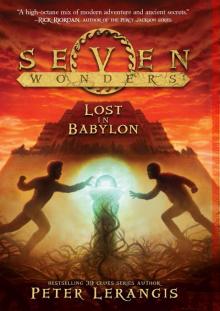 Lost in Babylon
Lost in Babylon Last Stop
Last Stop Antarctica Escape from Disaster
Antarctica Escape from Disaster Rewind
Rewind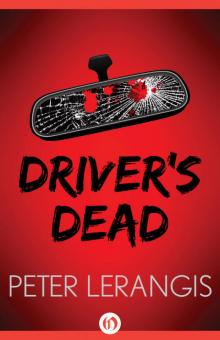 Driver's Dead
Driver's Dead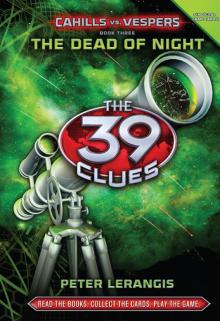 The Dead of Night
The Dead of Night The Promise
The Promise The Yearbook
The Yearbook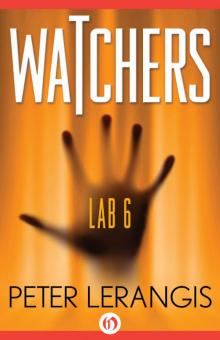 Lab 6
Lab 6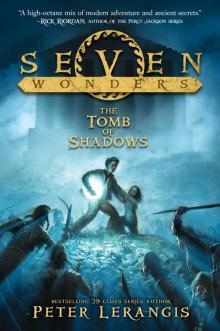 The Tomb of Shadows
The Tomb of Shadows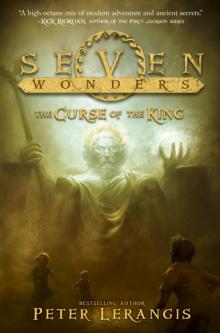 The Curse of the King
The Curse of the King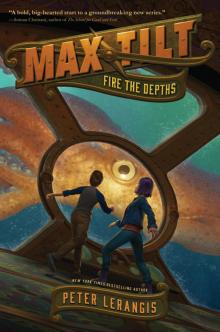 Max Tilt: Fire the Depths
Max Tilt: Fire the Depths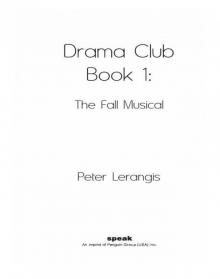 The Fall Musical
The Fall Musical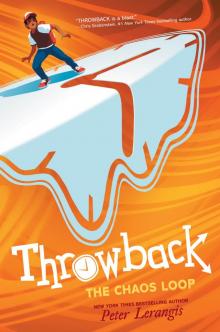 The Chaos Loop
The Chaos Loop Island
Island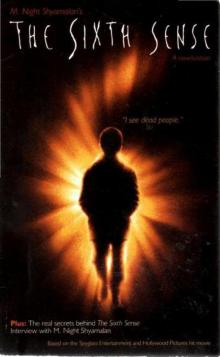 The Sixth Sense
The Sixth Sense Wtf
Wtf War
War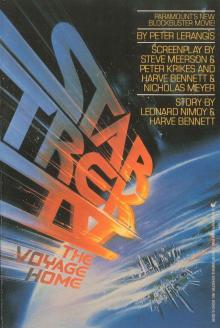 Star Trek IV, the Voyage Home
Star Trek IV, the Voyage Home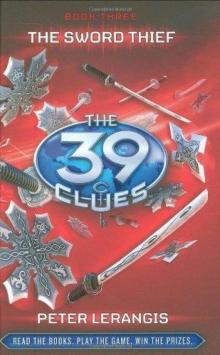 The Sword Thief
The Sword Thief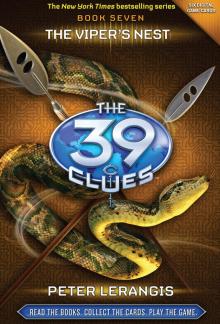 The Viper's Nest
The Viper's Nest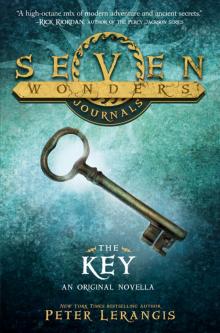 The Select
The Select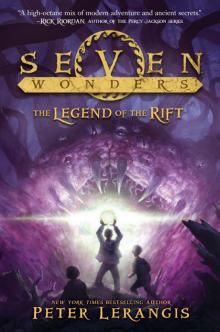 The Legend of the Rift
The Legend of the Rift I.D.
I.D. The Sword Thief - 39 Clues 03
The Sword Thief - 39 Clues 03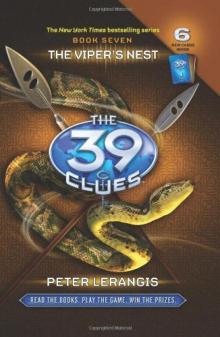 The 39 Clues Book 7: The Viper's Nest
The 39 Clues Book 7: The Viper's Nest Antarctica
Antarctica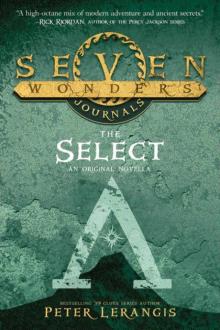 Seven Wonders Journals: The Select
Seven Wonders Journals: The Select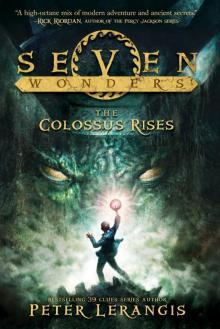 Seven Wonders Book 1: The Colossus Rises
Seven Wonders Book 1: The Colossus Rises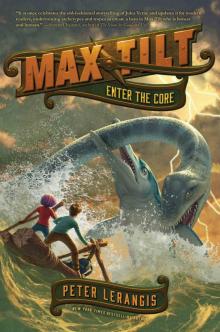 Enter the Core
Enter the Core![39 Clues _ Cahills vs. Vespers [03] The Dead of Night Read online](http://i1.bookreadfree.com/i1/04/02/39_clues_cahills_vs_vespers_03_the_dead_of_night_preview.jpg) 39 Clues _ Cahills vs. Vespers [03] The Dead of Night
39 Clues _ Cahills vs. Vespers [03] The Dead of Night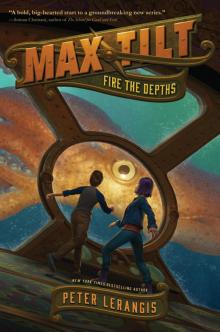 Fire the Depths
Fire the Depths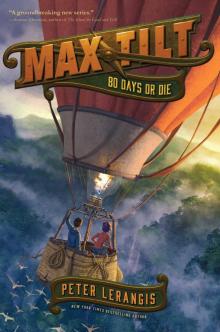 80 Days or Die
80 Days or Die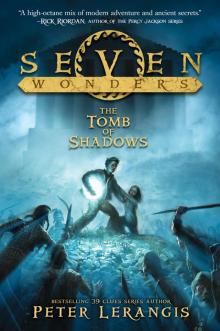 Seven Wonders Book 3
Seven Wonders Book 3